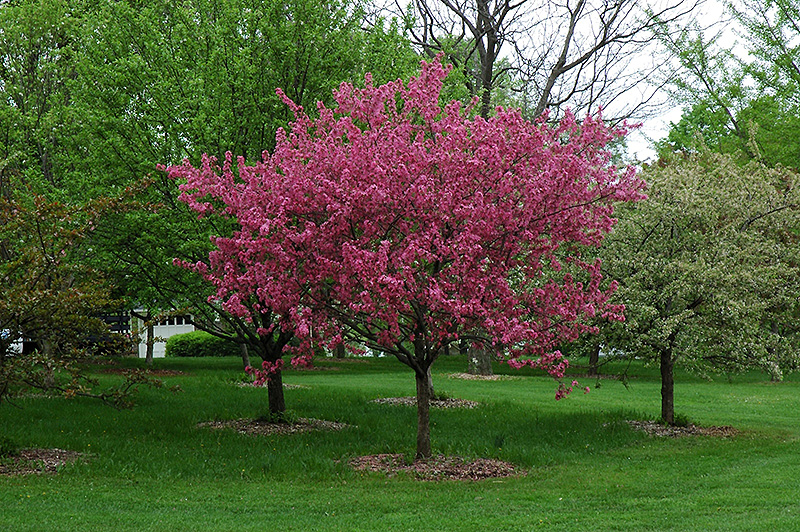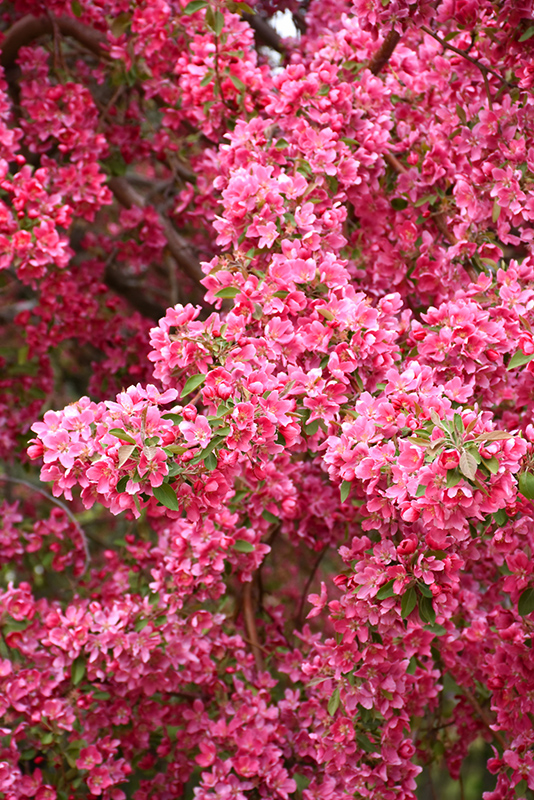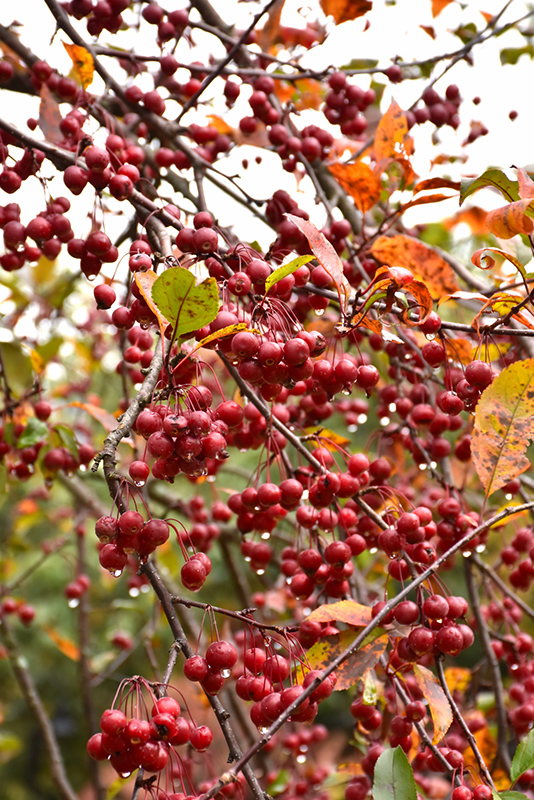Crabapple, Flowering Prairifire Malus 'Prairifire' Height: 20 feet Spread: 20 feet
Sunlight:
Hardiness Zone: 4a Other Names: Prairiefire, Prairie Fire, Prairefire Description: A highly regarded accent tree smothered in rich red flowers in spring and persistent small purple fruit in fall, upright habit of growth; the definitive ornamental feature tree for the home landscape, needs well-drained soil and full sun Ornamental Features Crabapple, Flowering Prairifire is smothered in stunning clusters of fuchsia flowers along the branches in mid spring, which emerge from distinctive red flower buds before the leaves. It has attractive dark green deciduous foliage which emerges burgundy in spring. The pointy leaves are highly ornamental and turn yellow in fall. The fruits are showy dark red pomes carried in abundance from early to late fall. Landscape Attributes Crabapple, Flowering Prairifire is a deciduous tree with an upright spreading habit of growth. Its average texture blends into the landscape, but can be balanced by one or two finer or coarser trees or shrubs for an effective composition. This tree will require occasional maintenance and upkeep, and is best pruned in late winter once the threat of extreme cold has passed. It is a good choice for attracting birds and bees to your yard. It has no significant negative characteristics. Crabapple, Flowering Prairifire is recommended for the following landscape applications; Planting & Growing Crabapple, Flowering Prairifire will grow to be about 20 feet tall at maturity, with a spread of 20 feet. It has a high canopy of foliage that sits well above the ground, and is suitable for planting under power lines. As it matures, the lower branches of this tree can be strategically removed to create a high enough canopy to support unobstructed human traffic underneath. It grows at a medium rate, and under ideal conditions can be expected to live for 50 years or more. This tree should only be grown in full sunlight. It prefers to grow in average to moist conditions, and shouldn't be allowed to dry out. This plant should be periodically fertilized throughout the active growing season with a specially-formulated acidic fertilizer. It is not particular as to soil type or pH. It is highly tolerant of urban pollution and will even thrive in inner city environments. This particular variety is an interspecific hybrid.![]()
![]()
![]()
![]()
![]()
![]()
![]()
![]()
![]()
![]()
![]()



